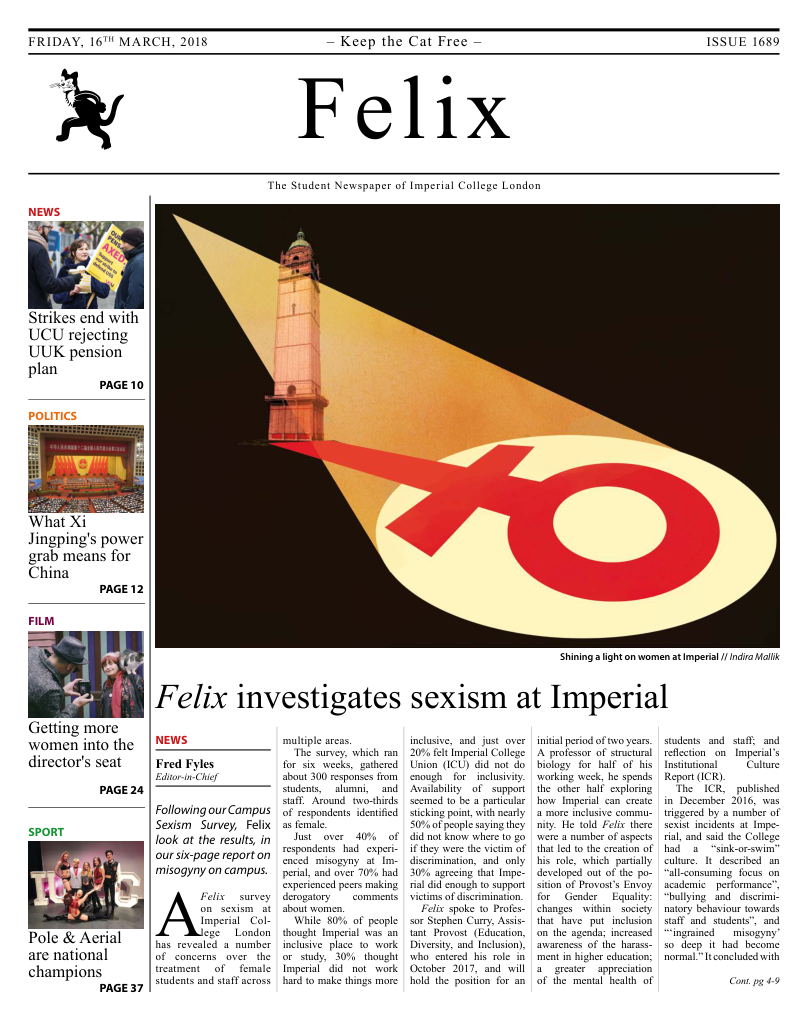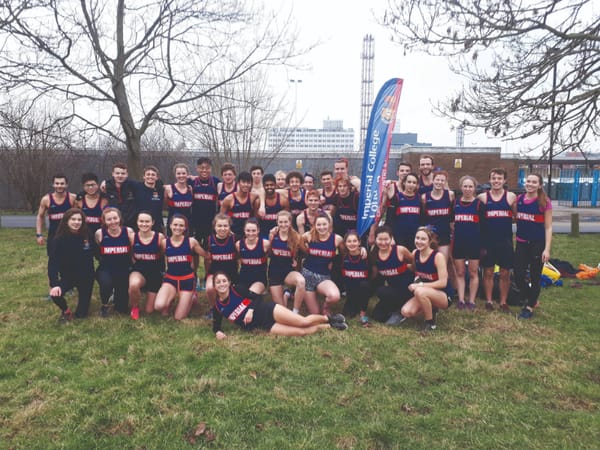Imperial Pole & Aerial take national title
Pole & Aerial head to the national competition, where they take home the

This weekend marks one of the defining achievements of ICU Pole & Aerial Society. In our fifth year of taking part in the Inter-University Pole Dance Competition – the third since regional heats were formally introduced – the Imperial team landed solidly in first place, ranking us 1st of the 49 UK universities to compete.
In 2017, a drama involving miscounted scores and wrongful trophy awarding in the South East UK Regional Heats finally resulted in Imperial being crowned the rightful Regional Champions, granting us the responsibility of hosting this year. In February, the Union Concert Hall was transformed into a pole dance extravaganza for twelve universities from across the south east in the 2018 South East University Pole Dance Competition (SEUPC) regional championship. Styles of dance ranged widely from contemporary to pole “classique”, complete with fantastic costumes and eight-inch heels. Performers were judged equally according to technical difficulty, fluidity, use of transitions, music interpretation and audience interaction. Due to the focus on dance and the flow of the performance as a whole, it’s not uncommon to see extremely complex tricks placing second or third behind exceptional or unusual performances. We had strong competition and more than one surprise to deal with, but eventually Imperial ran a tight show, finishing exactly on schedule(!) and managed to place 2nd overall behind Sussex, allowing us to qualify for Nationals.

On 10th March, the eight qualifying universities from the South East, South West, Midlands and Northern regionals, sent teams to Newcastle to take part in the national finals against their team. Each university submitted one performer each for Beginner, Intermediate, Advanced and Group categories, with Imperial once again competing against Sussex. Imperial’s team of five included: President Melissa Lee competing in the group category with Brandon Tsang and Alix Regnier; Brandon also competing in Advanced; Donja Karimlou in Intermediates; and Taylor Lyons in Beginners. The entourage consisted of former President (and superfan we can’t get to leave) Robin De Meyere, who came equipped with his best cheers and lots of love and support. He supported the team from Melissa’s excessive face mask routine the night before to the moment the shield was handed over.
Imperial’s win comes following a string of increasing successes for the society. Imperial’s first entry into IUPDC came in 2014, and the society was absolutely wowed by the quality of performances from across the country. Gradually creeping up the leaderboard, we placed 4th in 2015, 3rd in 2016 and 2nd in 2017, so this year’s win certainly follows the trend! The competitors also managed to score some significant individual wins throughout the year. In London Varsity 2018, Taylor Lyons placed first in London in the Beginners’ category. Donja Karimlou took 2nd and 3rd place in South East Regionals and Nationals respectively (despite creating a brand new routine for finals in only two weeks!) Brandon’s 2nd place advanced routine at SEUPC was awarded 3rd in the country, and lastly the group’s 1st place win at regionals continued to wow at nationals, awarding them 2nd nationally and cementing the title for Imperial.
IUPDC has been occurring in the UK since 2011, first hosted in Cardiff with fewer than 15 universities competing. As the competition grew, more universities wanted to take part, leading to a first-come first-served admittance system which left many universities side-lined. Following the introduction of National University Pole Association (NUPA) in 2016 to regulate competition rules and judging criteria, IUPDC was able to be expanded into four regional qualifiers with the top two universities in each round heading to the finals, massively increasing the number of universities permitted to take part.

As competitions are more spread out, with fewer competitors per day, the format of the competition has changed dramatically over time: competitors are able to pick their own music, there is now only one performer on stage at a time and the number of poles each performer can use has also increased. Dancers are now able to use both spinning and static poles, and they are judged on how evenly spread a performance is between the two poles, an analogous criterion to professional competitions like the aforementioned World Pole Sport and Fitness Championships, or the GAISF-recognised IPSF World Pole Sports Championships.
As the championship continues to progress and develop with the increasing popularity of pole sports, ICU Pole & Aerial Society are extremely excited to be a part of the expanding community developed through this competition. We are also extremely proud to be announced winners this year, when pole dance was officially internationally recognised as a sport by GAISF, showing our true commitment to the athleticism and grace involved in this complex art form. We are looking forward to continuing our tradition of attending and competing, and are thrilled to be awarded this title and the honour of hosting the nine talented finalist universities in IUPDC 2019.








